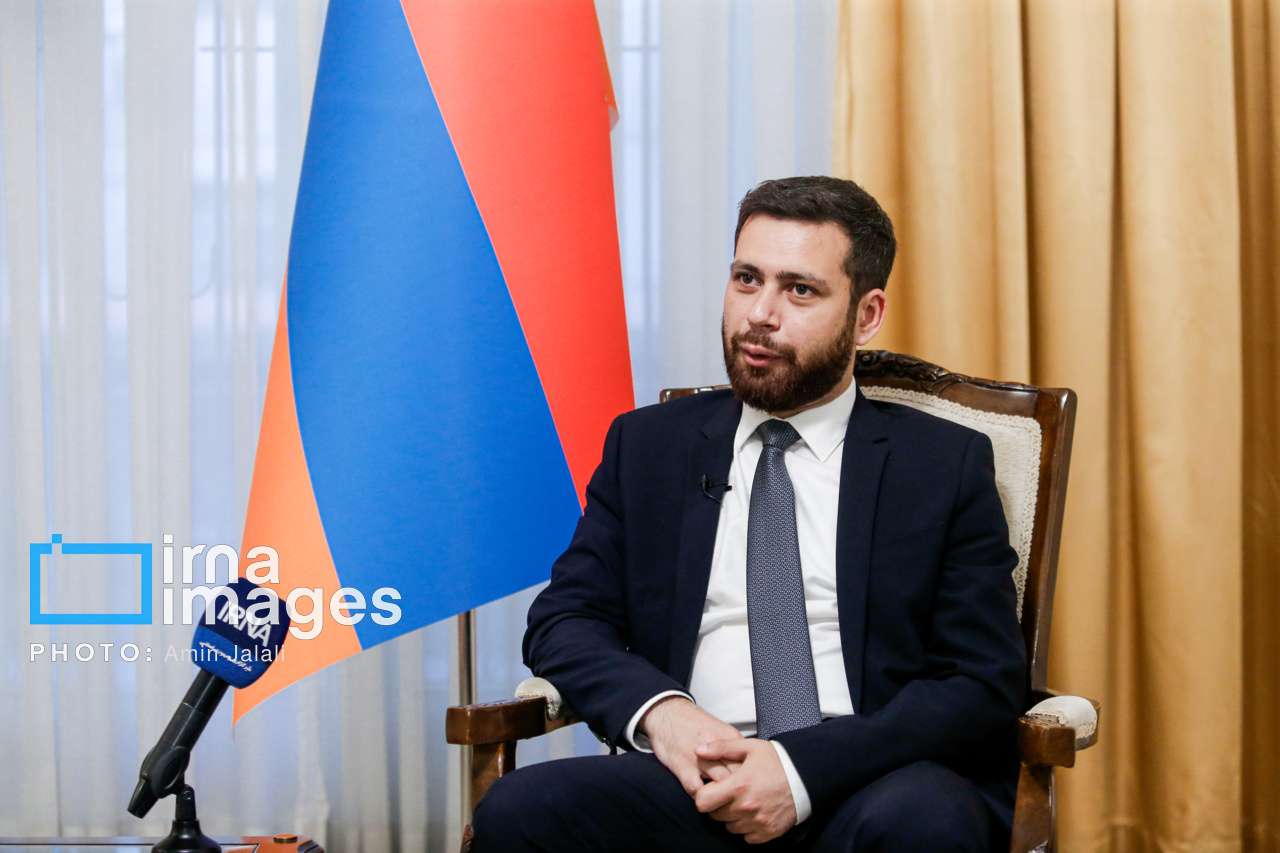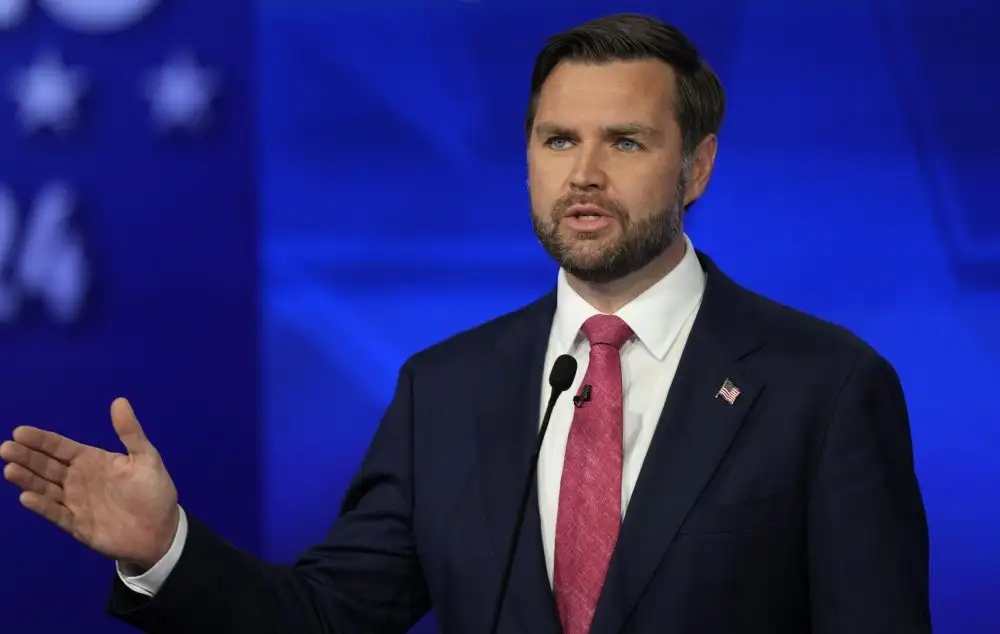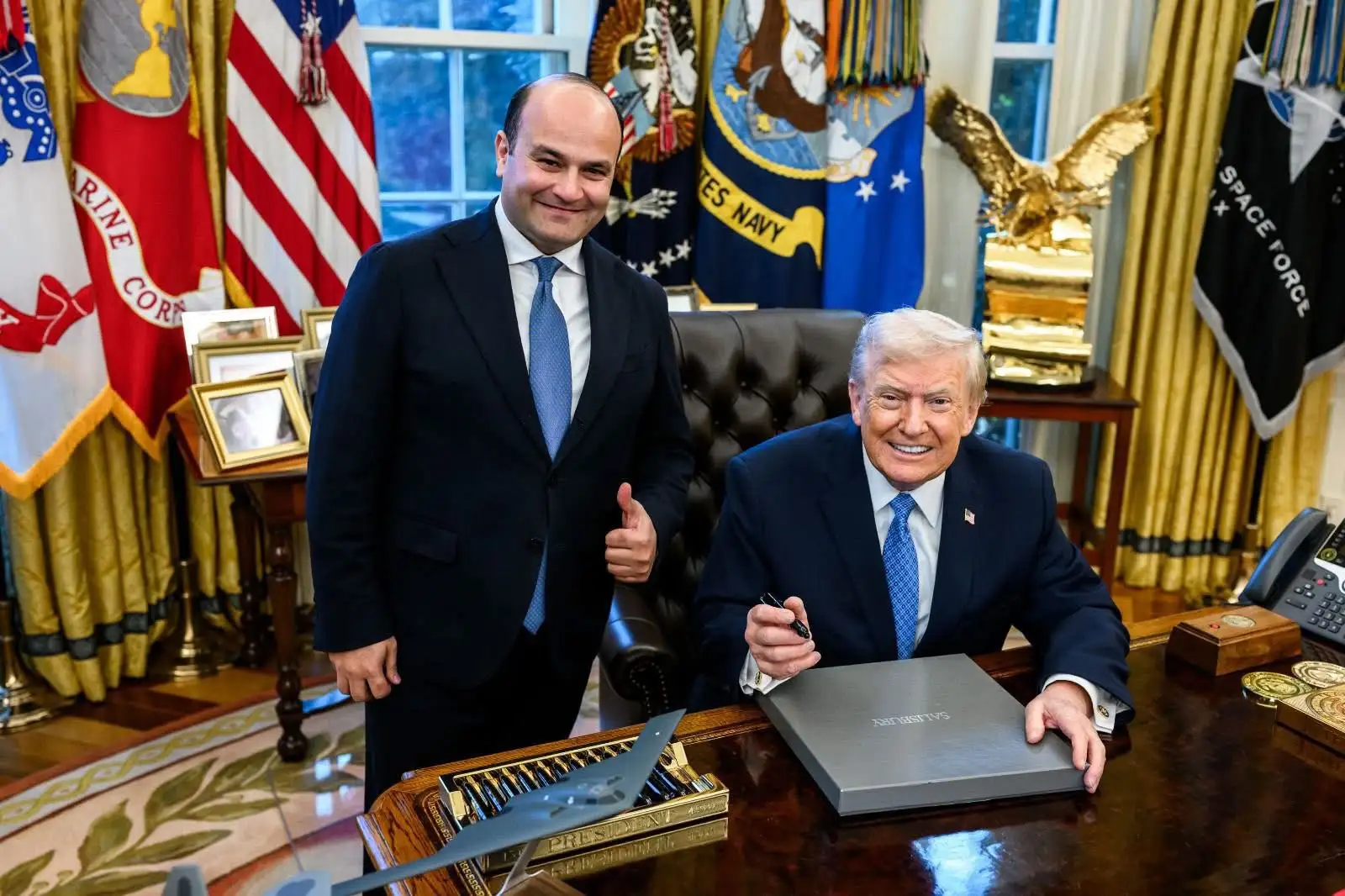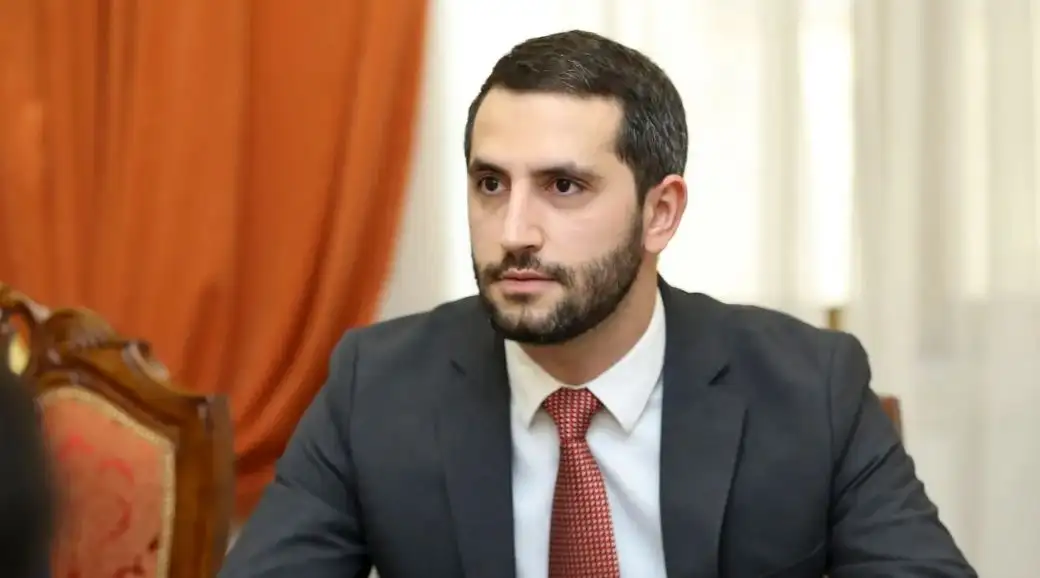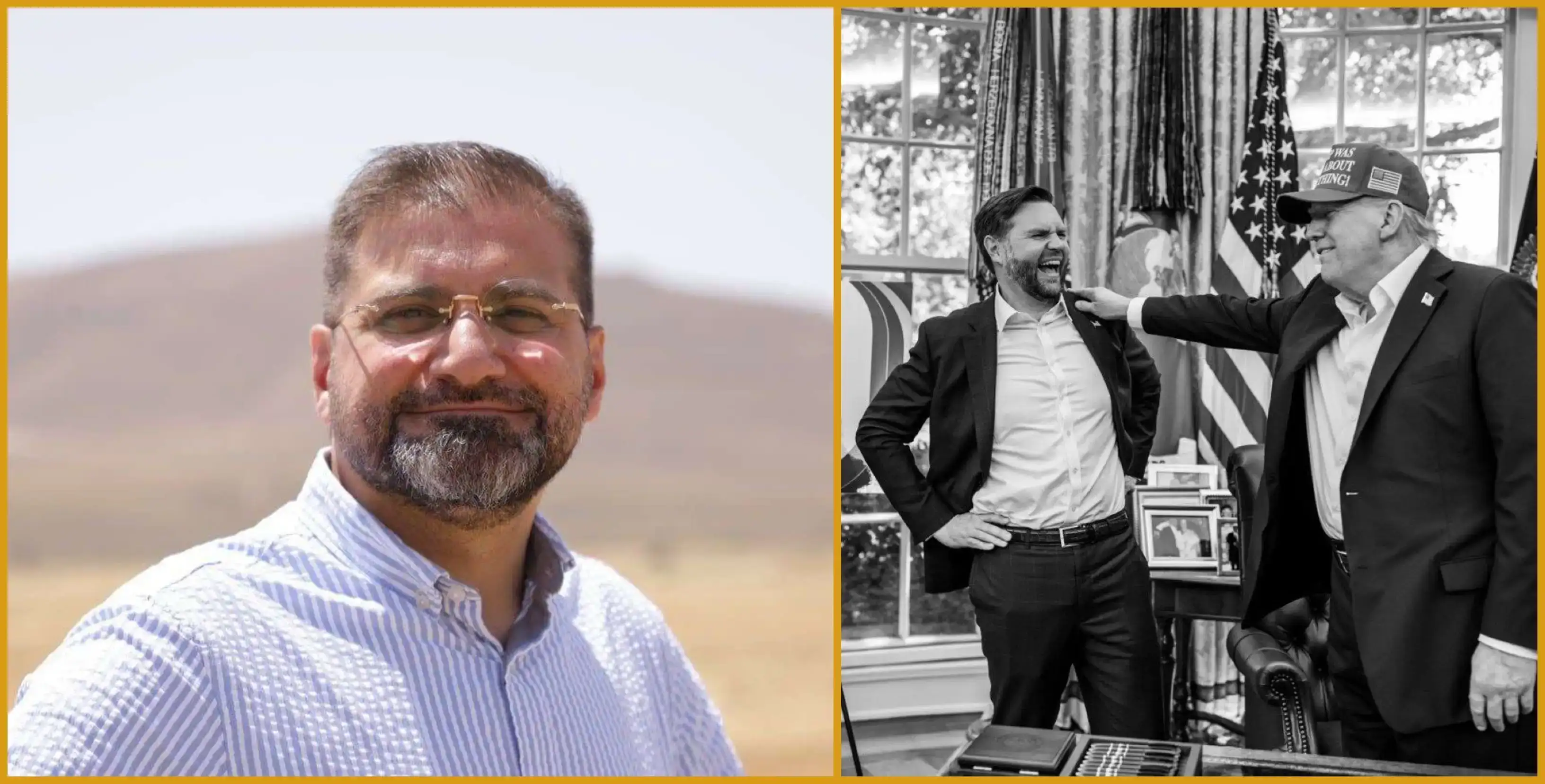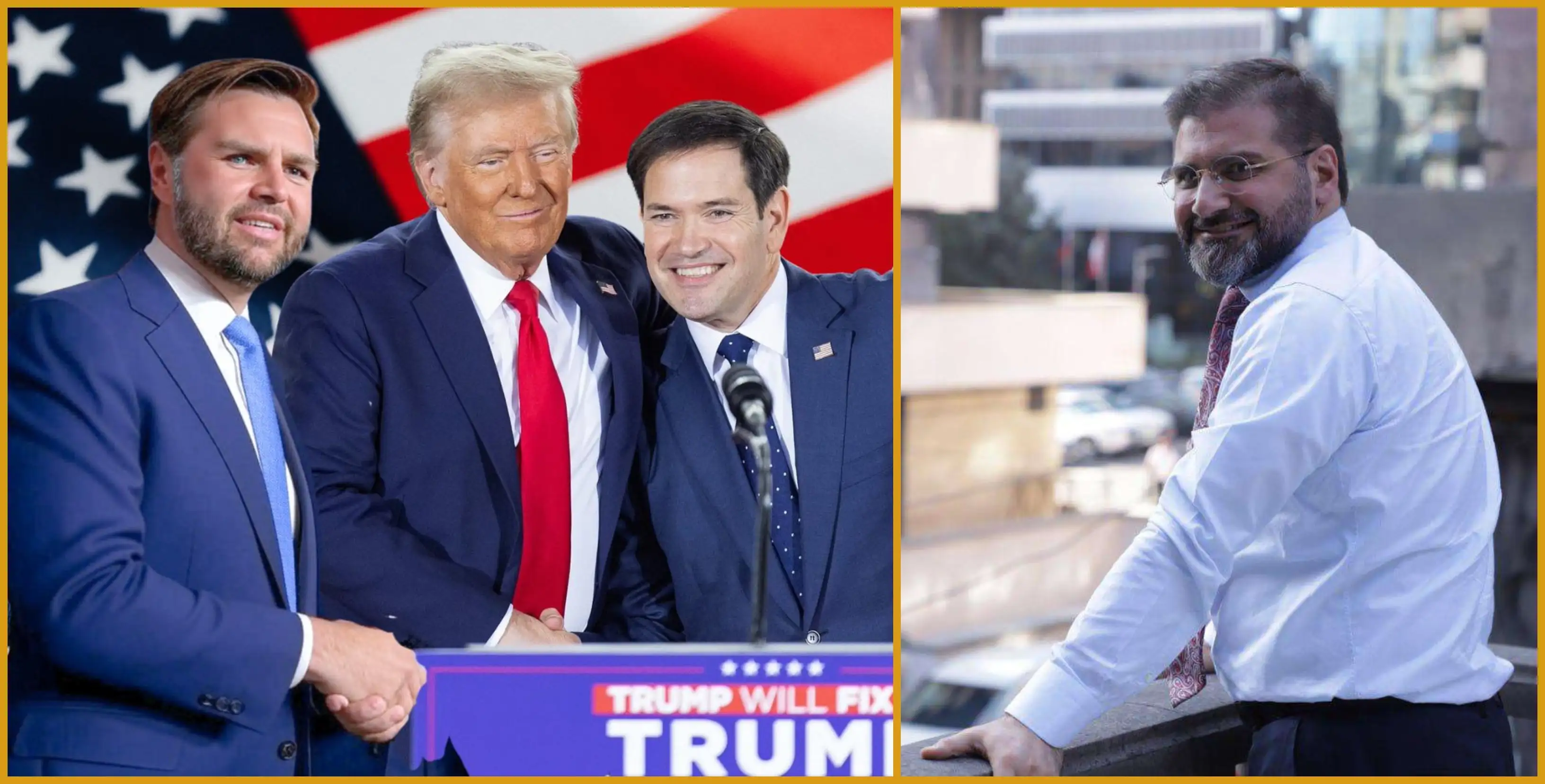RA Deputy Foreign Minister Vahan Kostanyan gave an interview to the Iranian IRNA news agency and touched upon the Armenian-Azerbaijani agreements signed under the mediation of US President Donald Trump and their impact on Iran.
He stated that relations between Tehran and Yerevan are of strategic importance and will never become the subject of any geopolitical deal.
"We value these relations, which have a history of thousands of years, and we must make them stronger and more stable for future generations," he said.
According to Kostanyan, Pezeshkyan's upcoming visit to Yerevan will raise them to a higher level.
The Deputy Minister also touched upon the reaction and concerns voiced by Iran after the signing of the agreement between Yerevan and Baku in Washington.
"It is essential to listen to the reactions and opinions of brotherly countries, especially Iran. We appreciate the balanced statement of the Iranian Foreign Ministry, as well as the further observations of the Minister and the President. Now we are entering a new era in Armenian-Azerbaijani relations. This will have a positive impact not only on our bilateral relations but also on regional dynamics.
One of our key agreements with Azerbaijan is the restoration of transport routes in the region, in full mutual respect for the sovereignty, jurisdiction, and territorial integrity of the countries. In practice, this will open up new opportunities for railway cooperation between Armenia and Iran, including through the Nakhichevan-Jugha railway, which will mean Iran's access to Armenia and, ultimately, the Black Sea," Kostanyan said.
Radar Armenia presents the key parts of the interview.
Question: How do you see Iran's place in this equation? And what is Yerevan's opinion on the role of regional mechanisms, such as the "3+3" format?
Answer: Regarding Iran's role, particularly within the framework of the "3+3" regional mechanism proposed by Iran, I would like to note that Armenia has been participating in this platform since the first session. This format of dialogue can become a suitable platform for discussing regional connectivity projects, especially. The latest developments in the relations between Armenia and Azerbaijan and the agreement in principle on the restoration of regional communications have opened a new chapter in the dialogue, including in the "3+3" format. According to the latest statement of the ministers, the next meeting should take place either in Yerevan or in Baku, and we also mean bilateral consultations with the Azerbaijani side.
Question: Given Washington's role in this agreement, what is Yerevan's position on the presence of the United States or any third party in the region? What guarantees are there that the United States will not play a negative role in the countries of the area?
Answer: As for Tehran's concerns about this agreement and the role of the United States, this was one of the main topics of our discussions yesterday and today. I came here with the message that Armenia has taken into account Iran's concerns, and these delicate points were taken into account during the preliminary negotiations on the communications project, known as the "Trump project". Some details of this project have already been determined and agreed upon, which I have shared with the Iranian side, and I am also ready to announce them publicly. A company is planned to be registered in Armenia, with its shares divided between Armenia and the United States. However, this does not imply that US security forces will be present in the region. This was one of the main concerns of the Iranian side, and it has been resolved.
For us, the unhindered operation of the Iran-Armenia border and its checkpoints, including those intended for the flow of goods and passengers, is of strategic importance, and we do not expect any obstacles in this regard. The opening of the communication channels, including the three new projects, will be implemented based on the sovereignty and jurisdiction of the countries, which in itself is another guarantee.
Question: Does Armenia not share the concern that the US presence in this region could lead to a power struggle between regional powers and Washington?
Answer: Our standard position on the opening of communication channels is outlined in the Armenian Prime Minister's "Crossroads of Peace" initiative. This opening should not lead to new geopolitical constraints but should serve as a means of strengthening trust between geopolitical powers. In practice, the American shares of a company registered in Armenia will benefit the United States, Iran will gain access to the Black Sea, and we will be able to connect with Russia via the Azerbaijani railway. We hope that this mutual economic interdependence will serve as a bridge to cooperation, not an obstacle.
Question: I have received part of the answer to my next question in your previous answers, but given the importance of the question, I would like to ask it separately. Tehran's concern and the importance it attaches to its short but significant and historical border with Armenia are being taken into account in Yerevan's negotiations.
Answer: One of Tehran's main concerns is the historical Iran-Armenia border. We value this border and are grateful to Iran for the political support it has shown in this issue in recent years. This position is as essential for us as it is for Iran, and it will not change under any circumstances. We have given the necessary guarantees to the Iranian side.
We are currently preparing for President Pezeshkyan's visit to Yerevan. This historic and long-awaited visit will further strengthen the political unity of our countries and open up new opportunities for economic cooperation.
Question: Can you tell us how many cooperation documents will be signed during this visit?
Answer: We expect that essential documents will be signed between the two countries, although we are keeping some details secret for now.
Question: Given that we are on the eve of President Pezeshkian's visit to Armenia, I would like you to send a message to the people of Iran.
Answer: The government and people of Armenia have deep respect for the leader, government, and people of Iran. The relations between our two countries are of strategic importance to us and will never be the subject of any geopolitical deal. We value these relations, which have a history of thousands of years, and we must pass them on to future generations. This is the conviction and message of my government.




